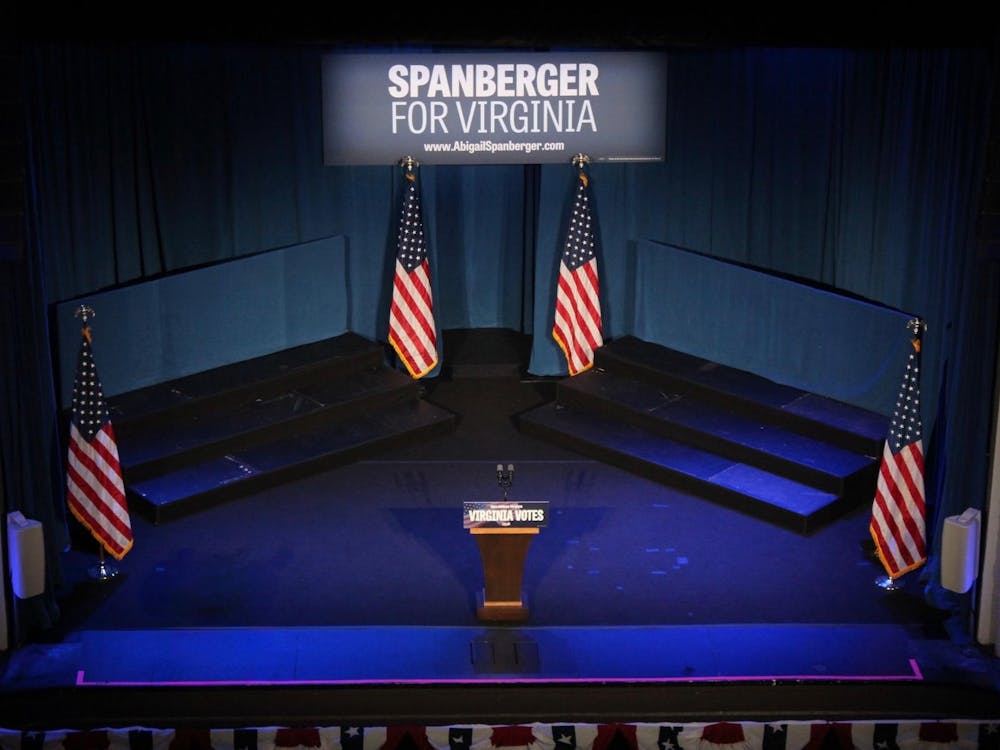As the new director of the government and foreign affairs honors program, Prof. John Echeverri-Gent has worked with students and faculty since last spring to bring fresh ideas and changes to the program.
His predecessor, Government and Foreign Affairs Prof. Larry J. Sabato, named Echeverri-Gent the program's director last spring.
The program is open by application to students who wish to pursue an intensive course of study in government and foreign affairs. Students receive a double-major in government and foreign affairs. There are now seven fourth-year students and six third-year students in the program.
"After 20 years of remarkable service, [Sabato] decided to turn over the responsibilities of directing the program to me," Echeverri-Gent said.
The first major change is the addition of another seminar for the students. In addition to the 15-credit weekly seminar, professors in the program also will hold seminars on thesis writing and research design. The additional seminar is required for the government honors class of 2003 and later classes but optional for current fourth-year students.
"The program has done a wonderful job in training students through the [existing weekly seminar] ... but the students are asked to write substantial theses" without much guidance on the skills necessary to write an outstanding and lengthy thesis, Echeverri-Gent said. Typical theses in the program range from 50 to 150 pages.
When writing an in-depth paper of such great length, the additional seminar will provide helpful guidance, said fourth-year government honors student Andrew Rogers.
The second change is the addition of a colloquium on Government honors theses, at which each graduating fourth-year student would present his or her thesis in a situation "roughly comparable to a dissertation hearing," Echeverri-Gent said.
"I'm looking forward to [the colloquium] mostly because I'm eager to hear what other students have been working on," fourth-year government honors student Sarah Hobeika said. "I'm eager to share what I've been working on because it's an extensive process."
The third major change alters the way students take other classes outside the seminars. Starting with this year's third-year class, government honors students will be required to take their other classes on a pass/fail basis rather than auditing them.
In addition to the seminars, the government honors program requires students take a minimum of six other courses in their third and fourth years combined. In the past, students have audited these classes, but according to Echeverri-Gent, University faculty members have had mixed feelings about allowing students to audit classes.
By requiring students to take their additional classes on a pass/fail basis, "faculty have to take the students seriously and provide them with proper evaluation," he said.
"There's a little bit more seriousness" from both students and faculty when taking courses on a pass/fail basis rather than auditing, said third-year government honors student Tim Johnson. But "it really doesn't change too much [in terms of required coursework] from what I can see."
The final change is to revamp and update the Web site created by the program's assistant director, Government and Foreign Affairs Prof. James Sofka.
Government and Foreign Affairs Prof. George Klosko said that even though some of the changes, such as the colloquium, cannot be evaluated until later in the year, he is optimistic about them.
"The changes are a terrific idea to give the program more structure," Klosko said.
Echeverri-Gent said that there were many other students and faculty helping him think of new ideas to improve the program.
Last spring, he met with current and incoming Government Honors students to gauge their sentiments about the program and ideas for change.
"The students are the ones who came up with many of these ideas," he said.






